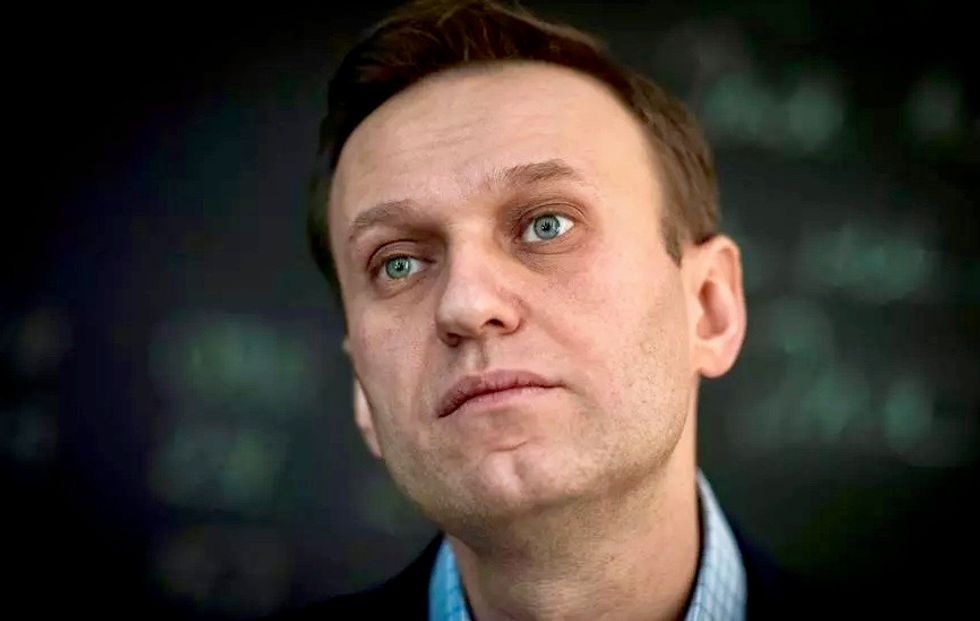
Russia’s poisoned opposition leader Alexei Navalny is out of a medically induced coma and is being weaned off mechanical ventilation, the Berlin hospital treating him said Monday.
“The condition of Alexei Navalny has improved. The patient has been removed from his medically induced coma and is being weaned off mechanical ventilation. He is responding to verbal stimuli,” said statement by the Charité hospital, Berlin.
The statement, however, noted that it was “too early to gauge the potential long-term effects of his severe poisoning”.
The 44-year-old Russian opposition leader fell ill on a flight last month and was treated in a Siberian hospital before being evacuated to Berlin.
Germany has said there was "unequivocal evidence" that President Vladimir Putin's top foe had been poisoned using Soviet-era nerve agent Novichok.
The Kremlin on Monday denounced the "absurd" attempts to blame Russia for the poisoning, as Europe considers whether to impose sanctions.
Navalny's associates say the use of Novichok, a military-grade nerve agent, shows that only the Russian state could be responsible, but the Kremlin fiercely denies any involvement.
"Attempts to somehow associate Russia with what happened are unacceptable to us, they are absurd," Putin's spokesman Dmitry Peskov told journalists on Monday.
Russian officials have accused Germany of being slow to share the findings of its investigation despite a request from prosecutors.
Germany to discuss possible sanctions
German Foreign Minister Heiko Maas said Sunday that Berlin, which holds the rotating EU presidency, will discuss possible sanctions against Russia if the Kremlin does not soon provide an explanation for what happened to Navalny.
Otherwise, Germany will be compelled to "discuss a response with our allies" including "targeted" sanctions, Maas said.
He did not rule out action relating to Nord Stream 2, a multi-billion-euro Russian-German gas pipeline nearing completion.
Pipeline in crosshairs
German Chancellor Angela Merkel's spokesman said Monday that she also would not rule out consequences for Nord Stream 2.
The €10 billion ($11 billion) pipeline beneath the Baltic Sea is set to double Russian natural gas shipments to Germany, Europe's largest economy.
It has long been in the crosshairs of the US, which has criticised European countries for their reliance on energy from Russia.
Western leaders have expressed horror at what Navalny's allies say is the first known use of chemical weapons against a high-profile opposition leader on Russian soil.
British Foreign Secretary Dominic Raab said Sunday that Russia had "a very serious set of questions to answer" and it was "clear" the Kremlin critic was poisoned with Novichok.
The Navalny poisoning is the latest in a long series of assassination attempts against Kremlin critics.
Already suffering from wide-ranging Western sanctions imposed over its 2014 annexation of Crimea, as well as the effects of the coronavirus pandemic and the drop in oil prices, Moscow is anxious to avoid any further pressure on its economy.
(FRANCE 24 with AFP, AP and REUTERS)




